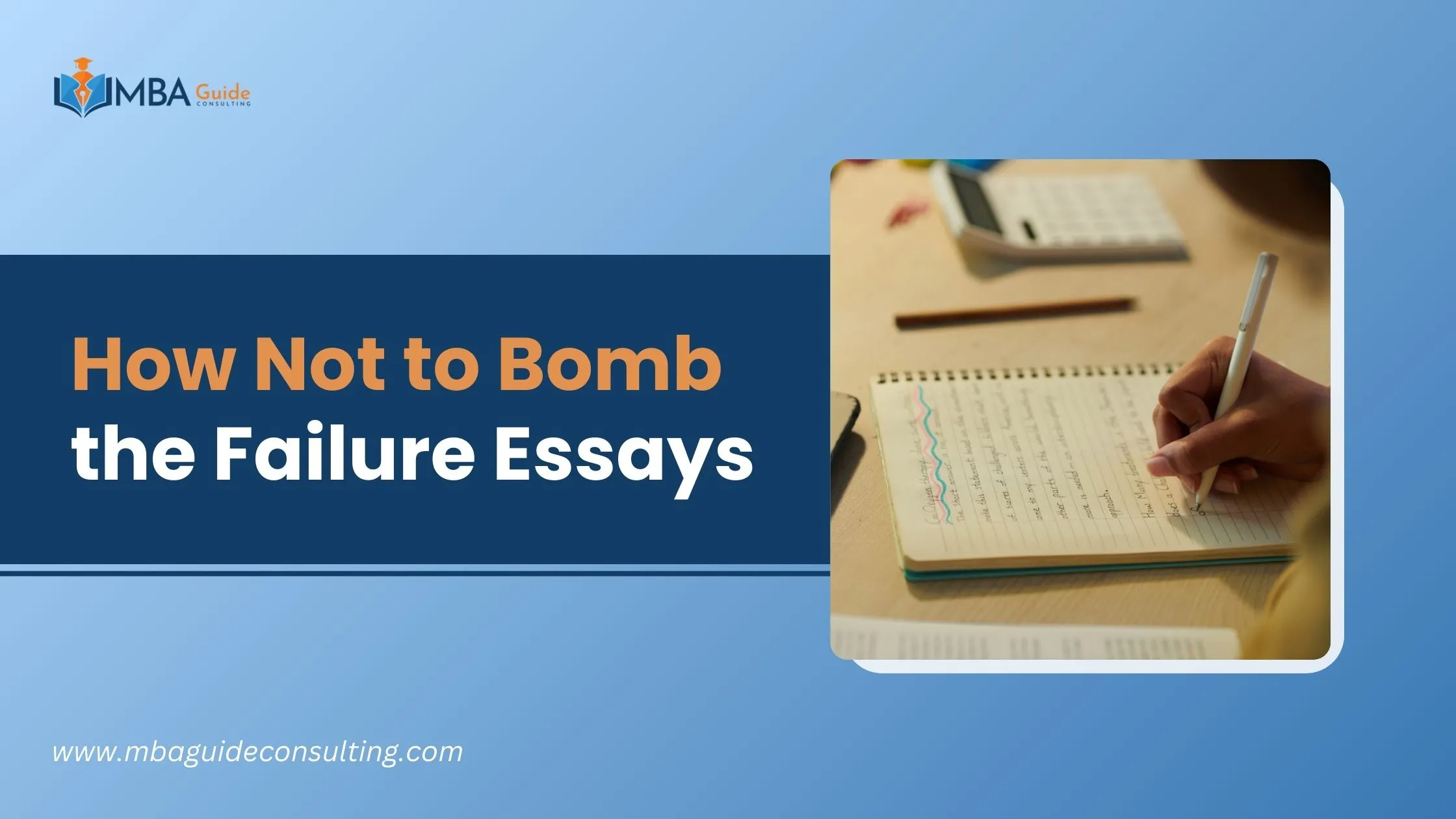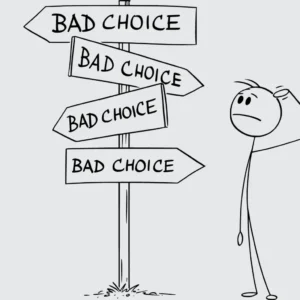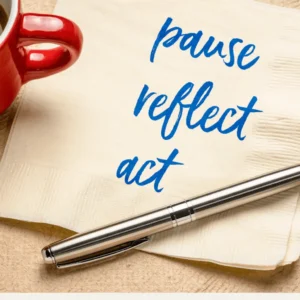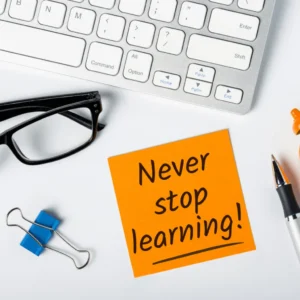- January 25, 2024
- MBAguide
How Not to Bomb the Failure Essays

Article Overview
What distinguishes an excellent candidate from a mediocre candidate?
Often, the distinction between two equally worthy candidates is in how the two approach the various aspects of human reflection skills that admissions committees assess the applicants on. Regardless of how good an applicant’s profile is, the essay on failure (or weakness) is often what most people struggle with in B-school applications. This essay on failure is a staple one in the INSEAD application and has also been included in the Indian School of Business application since 2023.
The real goal behind the essay on failure
Before we get into how applicants should approach the essay on failure, it’s crucial to grasp the underlying purpose of the essay in business school applications. Simply put, B-schools believe that self-aware individuals make better managers and conscious leaders than those who possess all of the traits and credentials but do not introspect or reflect on their activities. Self-awareness is frequently a recurring theme in business school applications.
Let’s take a look at why business schools strive to measure the ability to self-reflect in writings.

- Limited insight into strengths and weaknesses: A lack of self-knowledge can lead to a limited understanding of one’s strengths and weaknesses. The person may have difficulty effectively utilizing their strengths or addressing areas in need of improvement.

- Poor decision making: without self-awareness, a leader may find it difficult to make informed decisions. They may overlook their biases, fail to consider alternative perspectives or make decisions guided by their ego rather than a rational assessment of the situation.

- Ineffective communication: Lack of self-awareness can hinder effective communication. A leader may struggle to convey ideas clearly, understand the needs of their team or provide constructive feedback, leading to misunderstandings and conflict.

- Limited emotional intelligence: Self-awareness is a critical component of emotional intelligence. A leader who lacks this awareness may struggle to understand and manage their emotions, leading to difficulties in dealing with stress, conflict and interpersonal relationships.
- Resistance to feedback: Without self-awareness, a manager may be resistant to feedback. They see constructive criticism as a threat rather than an opportunity to grow, which hinders their personal and professional development.
- Difficulty building trust: Building trust is essential for effective leadership. Lack of self-awareness can make it difficult to build trust with team members as there can be a lack of authenticity and transparency.
- Inability to adapt: Change is a constant in the business world. A leader who is not self-aware may resist change, be slow to adapt to new circumstances, or fail to recognize the need for personal and organizational development.
- Poor conflict resolution: Conflict is inevitable in any workplace. A manager who is not self-aware may have difficulty dealing with and resolving conflict, potentially escalating problems rather than finding constructive solutions.
Why most applicants struggle to find the right stories for failure essays
The biggest reason candidates struggle with the essay on failure is a lack of understanding of what business schools test.
Many applicants are afraid that acknowledging a major failure will make a bad impression on the admissions committee, so they prefer to present a polished image and avoid discussing setbacks. The failure essay frequently asks applicants to reflect on the lessons they have learned and the personal growth that has resulted from failure, an activity that most applicants have never done and would probably never do if it weren’t for business school applications. It’s remarkable how many people struggle with self-reflection or don’t analyze their failures thoroughly. Some cultures or personal belief systems have. In some cultures or personal belief systems, there is a stigma attached to failure. This can lead to people not talking openly about their failures, even in a context like an MBA application.
Aiming for a Shot at The Top B-Schools But Confused About Your Strategy? Reach Out to Us
Common mistakes to avoid

- The personal or professional failure is not really a failure or is merely disguised as a failure.
Applicants may feel compelled to tell stories which, on closer inspection, do not have the depth or significance traditionally associated with failure. These might include instances where professional challenges were successfully overcome, albeit with slight delays and without significant negative consequences, or situations where setbacks were minor and quickly overcome. These are the majority of examples I see in applicants’ first drafts, and the perceived worth of these weak failure stories to the adcoms depends on how good your profile is otherwise, as a weak failure essay would not add much to the weighting. And often enough, applicants also exaggerate the severity of a situation to bring it in line with the admissions committee’s expectations.
The mantra for coming up with powerful failure story should be that if you haven’t felt remorse for something you’ve done in the past, or if you don’t feel uncomfortable discussing a guilt you have about something, it’s definitely not a great failure narrative yet. Reflection, introspection, and improvement are the best strategies for becoming a better version of oneself.
An important tip regarding personal failures: If you want to talk about personal failures, make sure the mistake was your own. Many management consulting applicants overuse the narrative that everything that has gone wrong in their lives, personal relationships or health is due to overwork and stress. That’s like sweeping the crumbs under the rug to shift the blame away from themselves, and that kind of story does not lend itself well to stories of weakness or failure. Think about situations where you intentionally or unintentionally hurt a loved one or a close friend because you were too indifferent or selfish to recognize what ultimately led to the deterioration of the relationship. Think about why you feel remorse now. What would you have done differently if you could travel back in time?

- Lacking the right tone–
In addition to the content of the failure story, the tone that applicants use in their essays has a significant impact on the impression left with the admissions committee. A common issue emerges when applicants adopt a neutral or even indifferent tone, demonstrating no genuine remorse or self-reflection about failures or mistakes. This can unintentionally convey the impression that the person struggles with self-reflection or does not recognize the significance of the experience. Whether it’s disappointment, frustration or a sense of responsibility, expressing genuine feelings adds depth to the narrative and allows the admissions committee to connect with the applicant on a more personal level.

- Missing out on takeaways and learnings– In addition to the content of the failure narrative, many applicants place too much emphasis on the actual story and all of the superfluous information that surrounds it, forgetting or failing to provide enough space to reflect on what they have learned from this experience and how they are attempting to be a better version of themselves. Candidates must explain how the lessons learned from the failure have been used professionally, as well as any changes to working techniques, strategic approaches, or leadership styles.
- Poor structure– poor structural organization in the failure essay often undermines the essay’s impact on the admissions committee. Common errors include a lack of coherence, resulting in a disjointed narrative with unclear chronology or subject matter. Lack of a clear introduction and insufficient self-reflection can obscure the significance of the failure. The use of technical language and an inappropriate conclusion can further diminish the impact of the essay.
Confused what might be the best strategy for your Business school applications. Reach out.
Best wishes
Aanchal Sahni (INSEAD alum, former INSEAD admissions interviewer)
MBAGuideConsulting
LinkedIn |Read Testimonials on WEBSITE: https://mbaguideconsulting.com/ | Message: +91 9971200927| email- mbaguideconsulting@gmail.com


Comments